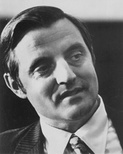1) In 1965, the Voting Rights Act (VRA) of 1965 help enfranchise the black population. What other problems did it indirectly solve?
"The VRA was a profound and comprehensive measure designed to protect minority voting rights , particularly, in states that had histories of voter discrimination. This was the essential purpose of the law. It could be argued that by doing so, American society would become more just and decent and that we would all benefit if Americans believed their nation was deeply opposed to official discrimination. The VRA was one of the most successful of all of the civil rights acts. "
2) Looking back, how was the VRA a turning point in US history?
" I believe it was. We could not, absolutely could not, succeed as a nation while we were also discriminating against millions of our fellow citizens because of race and color. We had to stop it. By opening the gates to millions of Americans, we also enhanced our reputation as a decent nation and expanded the pool of talent and energy. None of the other civil rights acts could have been successful without ending discrimination in the right to vote.
For a nation with a miserably record on this issue, with slavery itself protected in the constitution, only to be followed by the separate but equal fraud, we truly changed as a result of these laws. It worked and we are far better off."
3) Did the VRA help improve the image of America in the world?
"Absolutely."
4) In your opinion, is the VRA still needed?
"Absolutely. All across America over recent years we are seeing deep attempts to suppress voting in ways that prevent and discourage poor, black, minority, young and the handicapped from voting. The so called id challenges, hours -long voting lines especially in poor areas, suspicious voter list purging, etc. are all designed to prevent eligible Americans from voting. That’s why we must sustain the VRA for some years to come. And who is hurt by it? Let us protect against the risks here."
Walter F Mondale
"The VRA was a profound and comprehensive measure designed to protect minority voting rights , particularly, in states that had histories of voter discrimination. This was the essential purpose of the law. It could be argued that by doing so, American society would become more just and decent and that we would all benefit if Americans believed their nation was deeply opposed to official discrimination. The VRA was one of the most successful of all of the civil rights acts. "
2) Looking back, how was the VRA a turning point in US history?
" I believe it was. We could not, absolutely could not, succeed as a nation while we were also discriminating against millions of our fellow citizens because of race and color. We had to stop it. By opening the gates to millions of Americans, we also enhanced our reputation as a decent nation and expanded the pool of talent and energy. None of the other civil rights acts could have been successful without ending discrimination in the right to vote.
For a nation with a miserably record on this issue, with slavery itself protected in the constitution, only to be followed by the separate but equal fraud, we truly changed as a result of these laws. It worked and we are far better off."
3) Did the VRA help improve the image of America in the world?
"Absolutely."
4) In your opinion, is the VRA still needed?
"Absolutely. All across America over recent years we are seeing deep attempts to suppress voting in ways that prevent and discourage poor, black, minority, young and the handicapped from voting. The so called id challenges, hours -long voting lines especially in poor areas, suspicious voter list purging, etc. are all designed to prevent eligible Americans from voting. That’s why we must sustain the VRA for some years to come. And who is hurt by it? Let us protect against the risks here."
Walter F Mondale
